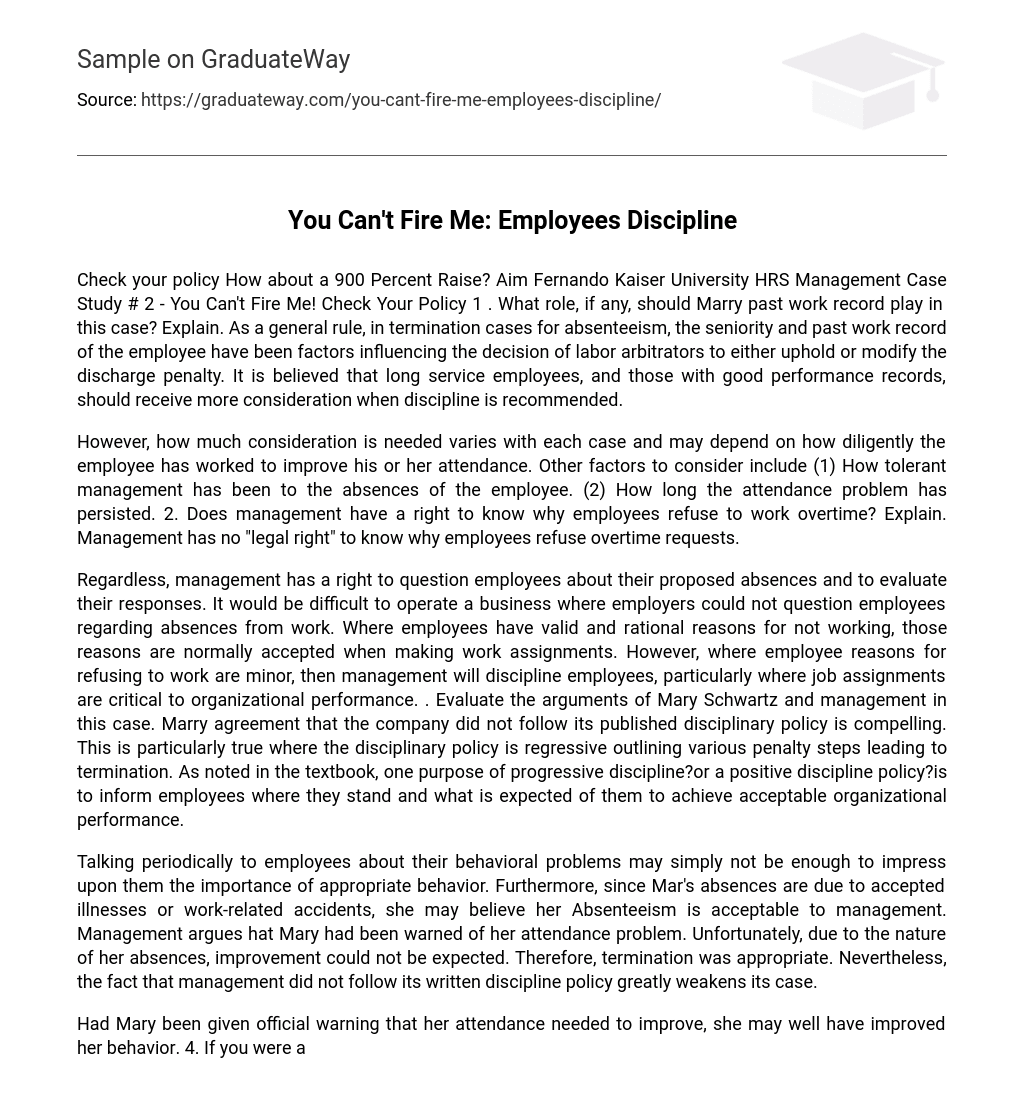What role, if any, should Marry past work record play in this case?
As a general rule, in termination cases for absenteeism, the seniority and past work record of the employee have been factors influencing the decision of labor arbitrators to either uphold or modify the discharge penalty. It is believed that long service employees, and those with good performance records, should receive more consideration when discipline is recommended.
However, how much consideration is needed varies with each case and may depend on how diligently the employee has worked to improve his or her attendance. Other factors to consider include
- How tolerant management has been to the absences of the employee.
- How long the attendance problem has persisted.
Does management have a right to know why employees refuse to work overtime?
Management has no “legal right” to know why employees refuse overtime requests. Regardless, management has a right to question employees about their proposed absences and to evaluate their responses. It would be difficult to operate a business where employers could not question employees regarding absences from work. Where employees have valid and rational reasons for not working, those reasons are normally accepted when making work assignments.
However, where employee reasons for refusing to work are minor, then management will discipline employees, particularly where job assignments are critical to organizational performance. Evaluate the arguments of Mary Schwartz and management in this case. Marry agreement that the company did not follow its published disciplinary policy is compelling. This is particularly true where the disciplinary policy is regressive outlining various penalty steps leading to termination.
Talking periodically to employees about their behavioral problems may simply not be enough to impress upon them the importance of appropriate behavior. Furthermore, since Mar’s absences are due to accepted illnesses or work-related accidents, she may believe her Absenteeism is acceptable to management. Management argues hat Mary had been warned of her attendance problem. Unfortunately, due to the nature of her absences, improvement could not be expected. Therefore, termination was appropriate. Nevertheless, the fact that management did not follow its written discipline policy greatly weakens its case. Had Mary been given official warning that her attendance needed to improve, she may well have improved her behavior.
If you were a member of the company’s peer-review complaint committee, how would you vote in this case? What facts would cause you to vote this way?
In this case, the arbitrator noted that the excessive absenteeism of Mary would armorial have justified a termination decision. However, because management clearly violated its progressive discipline policy, a policy upon which the employee could expect compliance, the termination was overturned.
As the arbitrator noted, “If employers could pick and choose when they elected to apply progressive discipline to employee behavioral infractions, then the policy serves no important expectations for the employee. In this case the discharge was reduced to a written warning. Management was told it could continue progressive discipline if the employees attendance did not improve.





